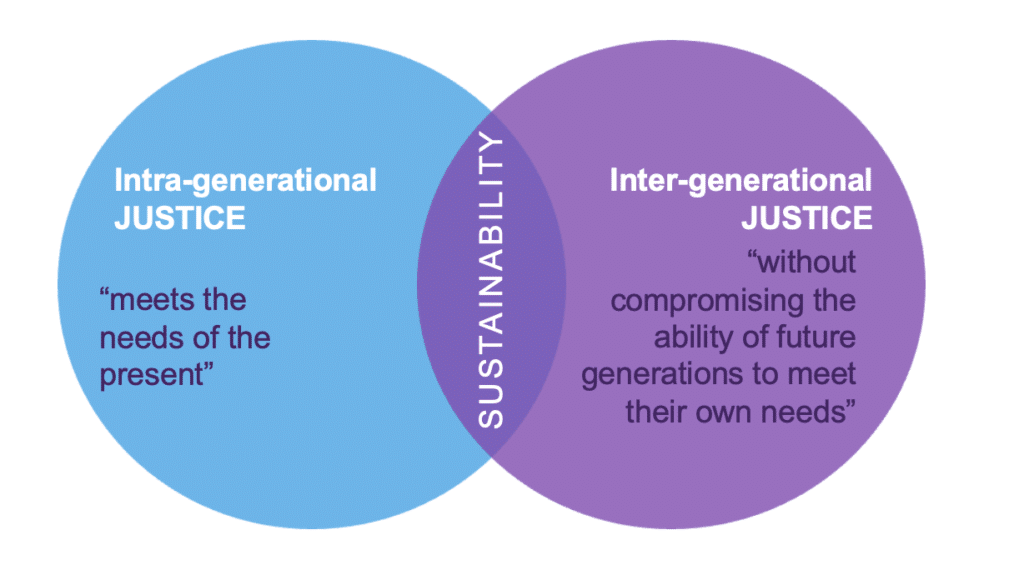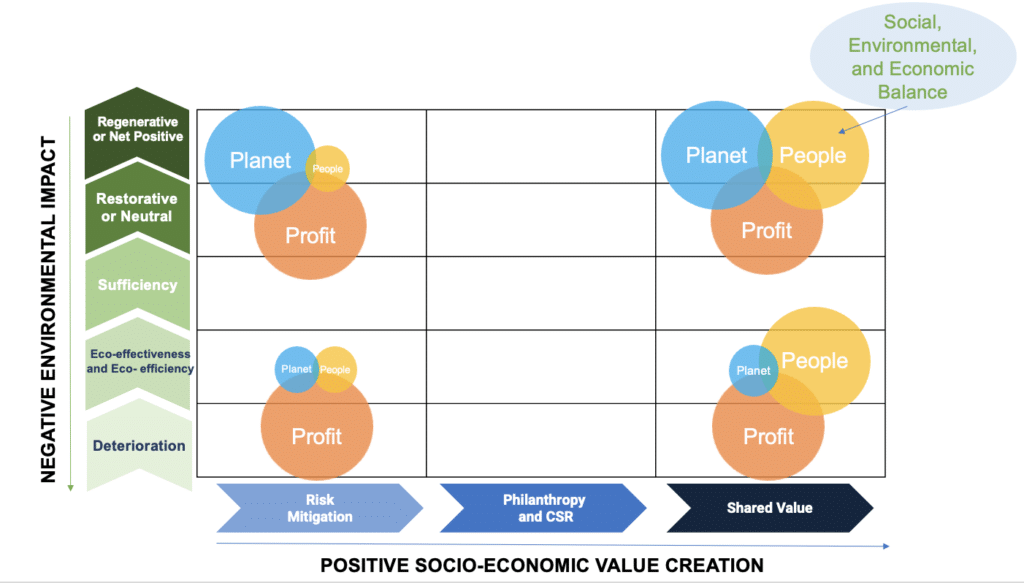Let’s study the widely accepted sustainability definition carefully:
“Meeting the needs of the present without compromising the ability of future generations to meet their own needs”
United Nations Brundtland Commission, 1987
Notice that:
- Even though people are not explicit, people are at the core of the concept (“Meet needs“).
- “Meeting the needs of the present” means not just the wealthiest peoples of the present generation, the most prosperous countries of the present generation, or the privileged groups of the current generation, but ALL peoples within the present age.
- “Without compromising the ability of future generations to meet their own needs,” meaning that all peoples of future generations (not only some portion of them) will have the resources they will need to meet their own needs.
As Prof. Rüdiger Hahn suggests in the book Sustainability Management: Global Perspectives on Concepts, Instruments, and Stakeholders, sustainability is a matter of intragenerational JUSTICE and intergenerational JUSTICE.

Took from Sustainability Management: Global Perspectives on Concepts, Instruments, and Stakeholders. Hahn, R. (2022)
Achieving a society that is sustainable means that it is equitable for all individuals within the planetary boundaries. So a better sustainability mindset would be closer to the Planet, People, and Profit balance, where the People layer has the same relative relevance as Planet. Notice how the relative relevance of layers is different, depending on how these are more dominant in some mindsets than others against the triple-bottom-line:

Environmental issues are more pressure issues today since we all have gotten used to social inequality and its consequences; is it normal? However, that doesn’t change the fundamental Sustainability concept, which is JUSTICE. Natural resources have been exploited, while 70% of the global population lives in countries where inequalities are increasing. The S in ESG is not an optional feature for sustainability committers but a duty they must do. Otherwise, the sustainability commitment is partial. Such a feat cannot be left to the best interests enlightened: if it were so easy, the problems would have already been solved.
So, as a business what now?
- Ensure a shared understanding. Collaboration is key to advancing sustainability internally and externally. Ensure a shared mindset of what we want to achieve against the triple bottom line among employees and stakeholders.
- Make your actions and communication consistent with your mindset: A pledge for “Climate action,” “Net-zero,” or “Circular economy” is not a pledge for sustainability but a part of it. A promise for sustainability encompasses environmental, social, and economic (and governance) targets.
- Leverage current gaps in your social footprint. Regardless of budget or headcount, every company has a social footprint linked to its products/services, operations, value chain, and ecosystem—leverage current gaps to build a compelling, comprehensive, and cohesive sustainability strategy. Read the post: Social impact is inherent to your business.
This article was previously featured on Rishift










